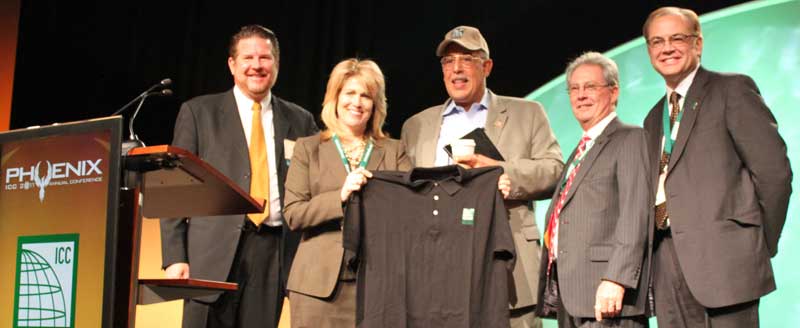
There are things America needs to fix to improve its response to natural disasters, retired Lieutenant General Russel L. Honore' told Annual Conference delegates during Monday's ICC Foundation Luncheon.
"How you respond or how you survive is in a direct proportion to how prepared you are," he said. "Disasters are going to happen. The difference is how resilient we are in our communities."
Prior to his command of Joint Task Force Katrina–leading the U.S. Department of Defense's (DOD) response to Hurricanes Katrina and Rita in Alabama, Mississippi, and Louisiana–Honore' supported DOD planning and response for Hurricanes Floyd in 1999; Lili and Isidore in 2002; Isabel in 2003; and Charley, Frances, Ivan and Jeanne in 2004. He identified four key areas in need of immediate action:
• Loss of electric power. Honore' pointed to last weekend's snow storm in the Northeast that caused more than 1 million to lose power, and called for better construction and location of electrical substations and distribution systems, as well as widespread ownership of generators in homes, businesses and other facilities.
• Better early warning and evacuation systems. Honore' said 70 percent of residents do not take heed to severe weather warnings, and 20 percent do not evacuate when a disaster such as Hurricane Katrina is approaching. If they survive the disaster, in addition to a lack of electric power, the residents are without essential items such as water and medicine. "They'd rather live at home miserable than go live in a high school gymnasium somewhere," he said.
• Improved infrastructure on Railroad Street. In every community, Honore' said there is a section known as Railroad Street where poor, elderly and disabled citizens live because the housing is affordable—and more prone to disasters. "When a disaster hits, Railroad Street is a place where the government will spend most of its resources," he said.
• Smarter building in disaster-prone areas. Honore' used the Native American name for the Mississippi River, the "Father of Waters," as a metaphor for building in disaster-prone areas, and called for stronger building codes—especially for hospitals and other emergency facilities—and better design of structures. "We can't continue to build our houses out of glass unless the glass is unbreakable," he said.
"On any given day Mother Nature can overmatch us," he continued. "Whether we survive or not is based on the work you do."
